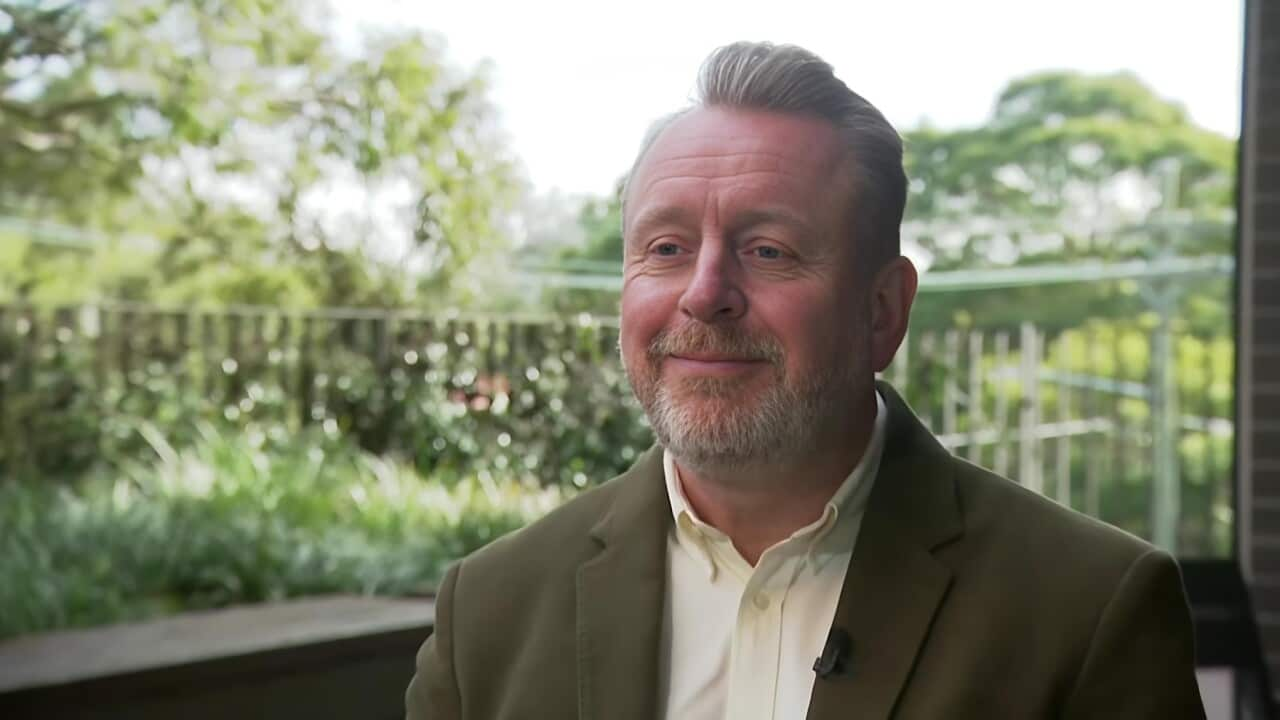TRANSCRIPT
Matthew Croxford thought he was on top of his health, but he almost overlooked a potentially deadly symptom of melanoma.
"I was in the gym and I’d done something and I thoughT I’d felt a twinge up in my shoulder. And I put my hand up to find out, 'have I pulled a muscle or something', and I found this lump up in my collarbone on my left hand side. 'What on earth is that?' I'd never come across it before."
When it didn't go away, he went to his doctor and that's when he received the life-changing news.
"I got a diagnosis that basically said you've got melanoma, it's metastatic, it has traveled beyond through your skin into your blood stream and is in your lymph nodes. And it's very late stage cancer."
What shocked him even more was that there was no sign of the primary melanoma where the cells originated.
"There'd been a mole somewhere that had become cancerous with the sun and it had transferred down through the layers of the skin, into the bloodstream-- and the lymph nodes had started to filter it out. And the lymph nodes had grown and swollen out. And it got to about the size of a golf ball. But, it was hidden. I couldn't see it. You couldn't see it."
But a new treatment approach for patients with Stage Three disease, like Matthew, offers great promise.
It involves giving two immunotherapy drugs six weeks BEFORE the cancer is removed - in contrast to the current medical approach which delivers immunotherapy AFTER its removed.
Melanoma Institute Australia's University of Sydney Professor Georgina Long says these are important results for melanoma and the cancer field more broadly.
"Because what we have shown is if you stimulate the immune system in the right way, and we've been doing this for now in melanoma for nearly 15 years, but just simply bringing it forward when the cancer's still in the body and training the immune system better we get this massive reduction in the risk of secondaries of the cancer spreading - melanoma, particularly, spreading."
Even in patients where the primary melanoma is found - as it most commonly the case - the concern is that undetectable cancer cells have already spread in the body by the time it's removed.
By ramping up the body’s own immune system to kill these cells it reduces the risk of metastasis to other areas.
Professor Long says so far the results have been astounding.
"We saw a massive 68 per cent reduction in the risk of the melanoma either coming back before surgery, coming back after surgery or death from melanoma, was markedly reduced if we simply give two lots, two cycles. Six weeks of immune-stimulating therapy before the definitive surgery. That is incredible."
Researchers are now seeking regulatory approval to change the way melanoma is managed so all patients can benefit from this treatment.
These results could also pave the way for how other cancers are managed, not just in Australia but overseas too.
Six months on, Matthew remains cancer free and thankful for a new lease on life.
"For me it's a heartfelt deep thanks to Professor Long and her team. without them, I might not have been here. I mean 10, 15 years ago I reliably understand that this would have been a fatal diagnosis, that I might not have been here after that. Because of the work they're doing people like me get extra time with friends, family and loved ones and I couldn't be more thankful for that."













